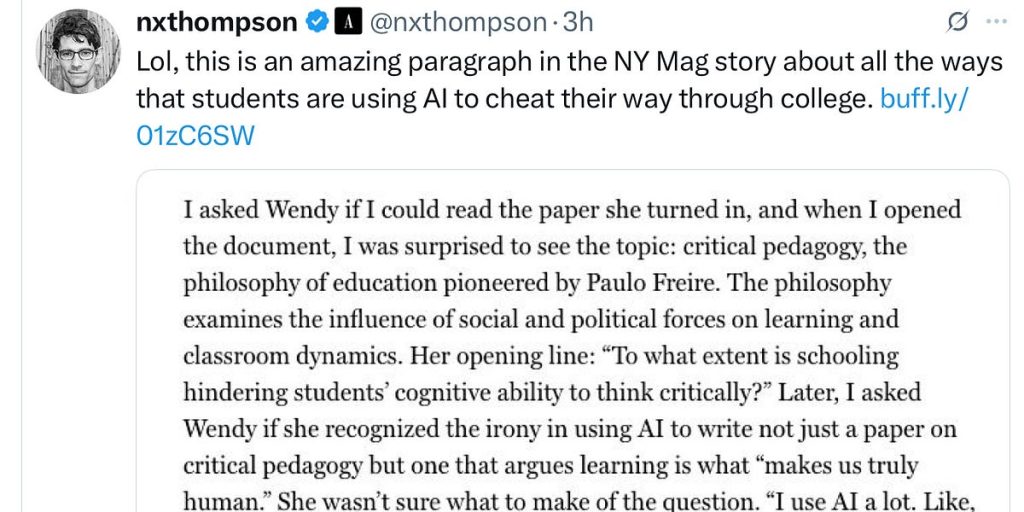The big story making rounds today is New York Magazine’s Everyone is cheating their way through college, using GenAI, which concludes, inter alia, and probably correctly that
Massive numbers of students are going to emerge from university with degrees, and into the workforce, who are essentially illiterate…Both in the literal sense and in the sense of being historically illiterate and having no knowledge of their own culture, much less anyone else’s.
Nicholas Thompson, CEO of The Atlantic, pulled out one of the choicest bits.
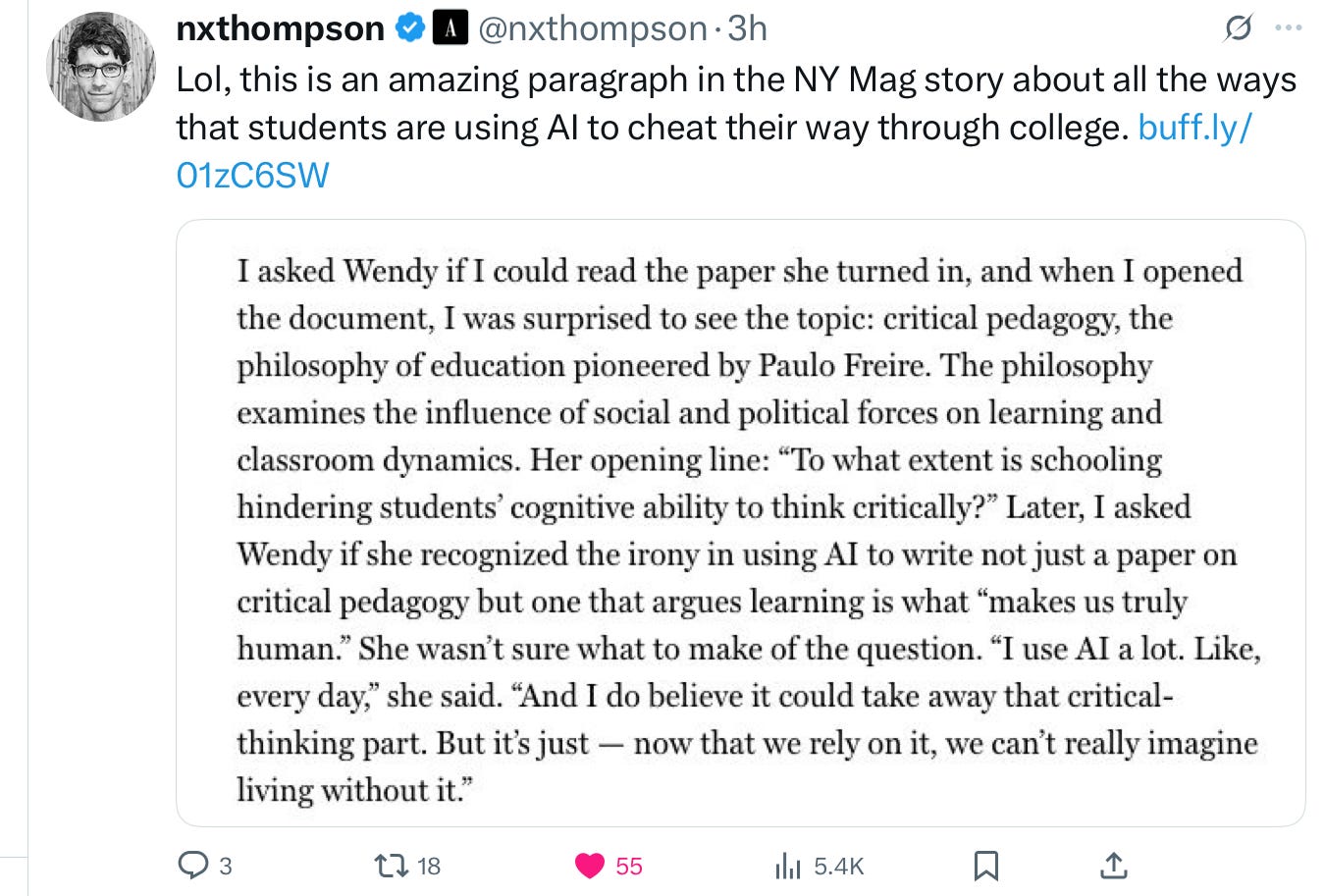
§
Kevin Roose, who has positioned himself as champion and defender of the AI industry, threw college professors under the bus:
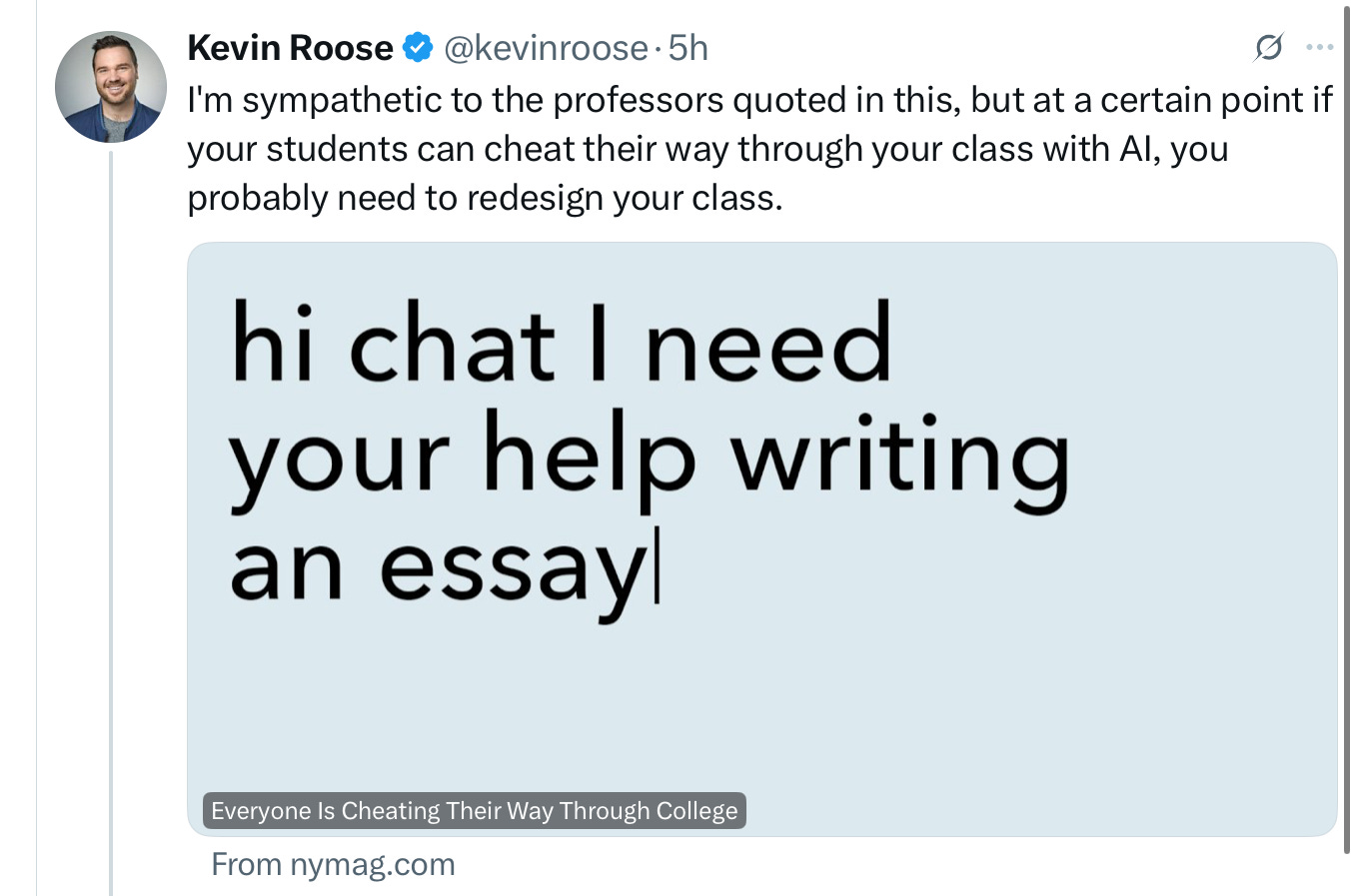
Thompson made the same point, but with less condescension.
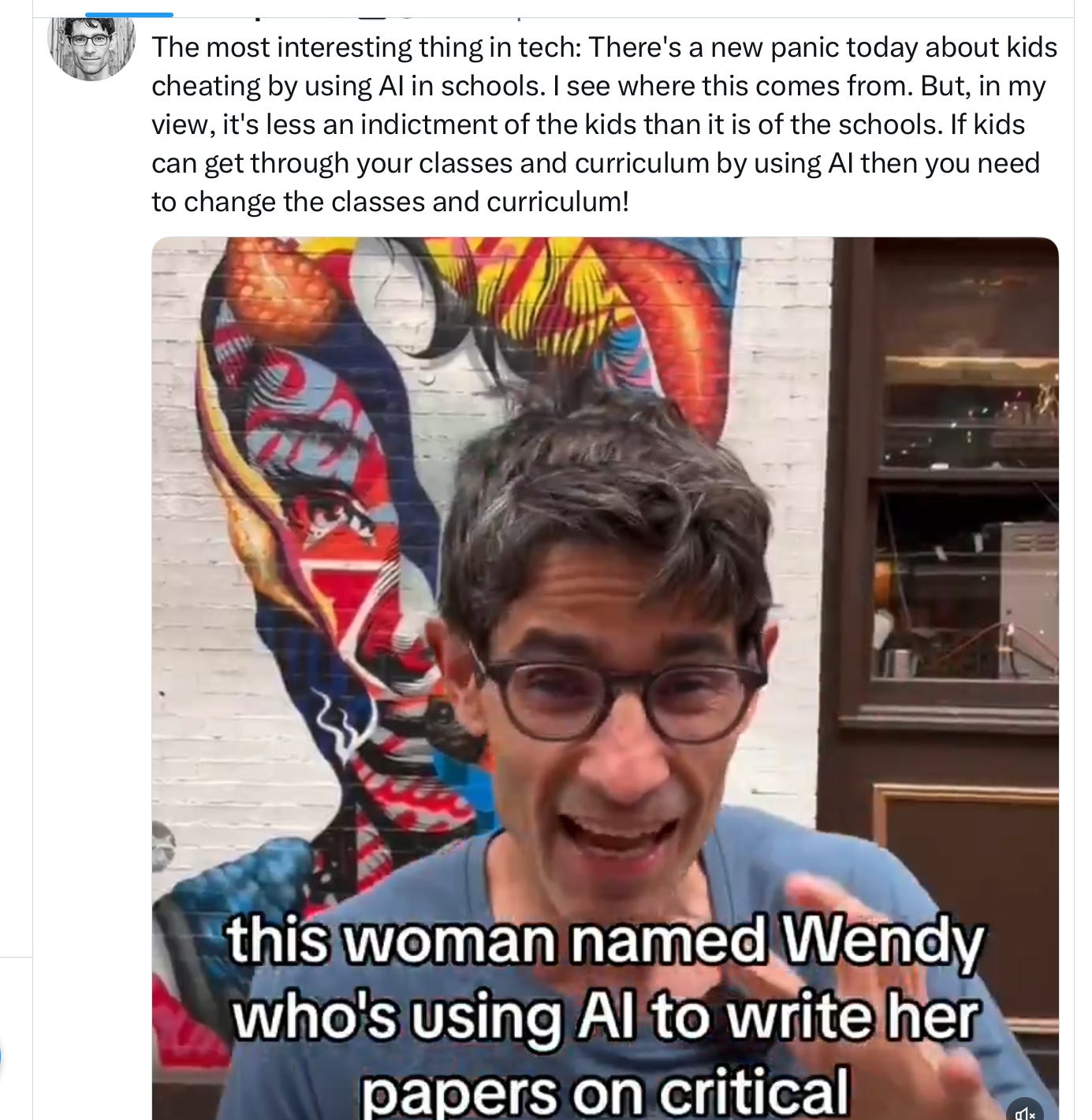
Roose and Thompson both have a point. The curriculum does, obviously need a redesign. The status quo clearly no longer works. I (having retired from the academy since 2019) made one suggestion myself two years ago that I still stand by, but it is hardly a full solution to the scope of the problem:
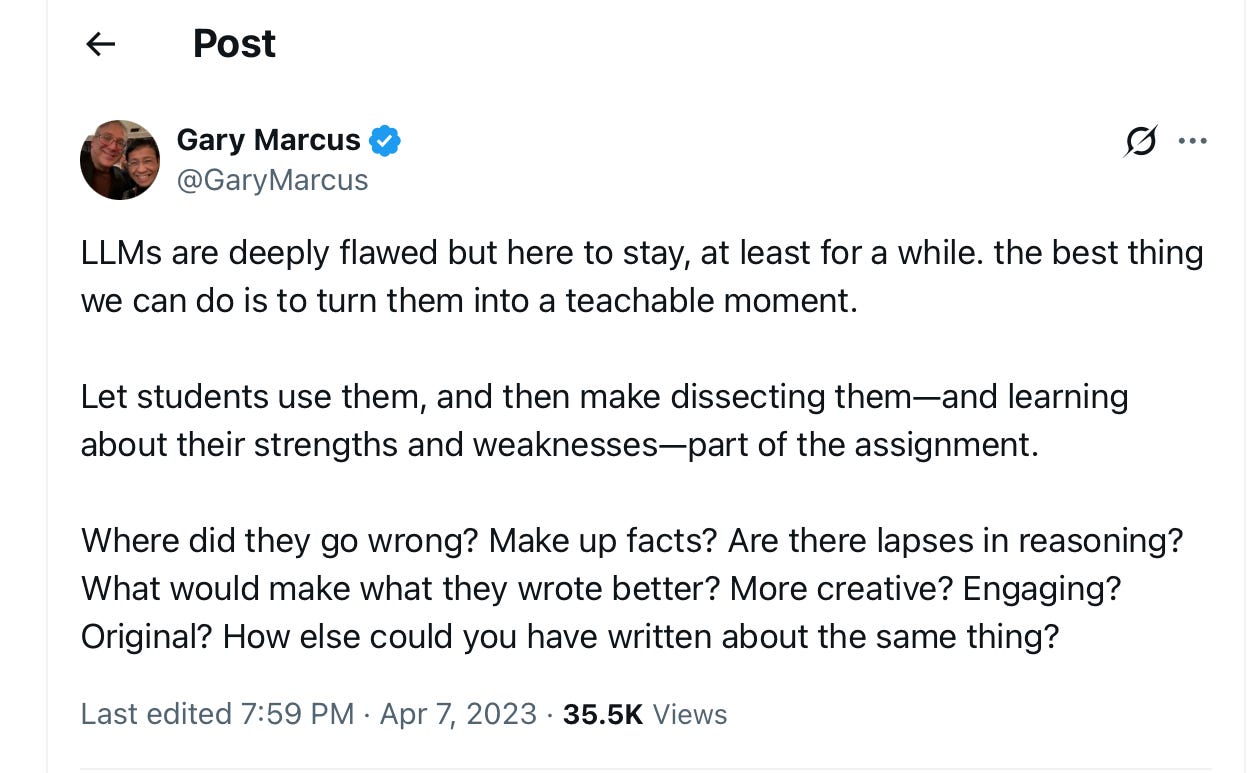
In a tweet that I cannot readily find but that got several million views, a professor used this technique with his students — and found that in something like 60 out of 63 LLM-generated papers, alert students were able to discover hallucinations. As a one-off it’s a great assignment.
But here’s the thing. We are going to do need a more thorough going redesign than that. And, crucially, there is a problem of scale. Term papers exist in part because they are an economically efficient way of teaching and evaluation large numbers of students. Or at least they were. Now they are basically worthless.
Term papers aren’t a great educational tool (lord knows I graded enough of them back in the day), but they did fulfill several functions, such as giving students practice writing and getting students to reflect on some body of work. They also provided a decent though imperfect basis for evaluating students at scall. GenAI has nuked all of this. In tiny classes (say 5 students) one could reach similar objectives entirely through in-class discussions, replacing the need for term papers, and cutting GenAI out of the loop. But that’s not going to work with a class of 100 or 500.
With enough money you can have TAs and smaller sections of say 20 students each, taught by teaching assistants, but with university budgets being slashed, few universities will have enough money to make that work.
You can’t cut funding to universities, signal to kids that using ChatGPT to write the papers is ok, and expect professors to save the day and the educational system without financial support.
If you want GenAI to succeed, and you want our children to be educated, you can’t just wave your hands and hope for the best.
The real issue is who bears the cost. The creators and distributors of GenAI, who have brought this huge problem to society? Or a bunch of underpaid, overworked college professors who may have dozens or hundreds of students?
The likely outcome here? College students from here on out will get little from their educations, professors will be overwhelmed, unable to adapt to the scale of what would be required to do individualized education with budgets that don’t really support that, and the Sam Altmans of the world will laugh their way to the bank.
Employers will struggle to find well-educated employees. Democracy, which thrives on having an educated citizenry, will crumble.

